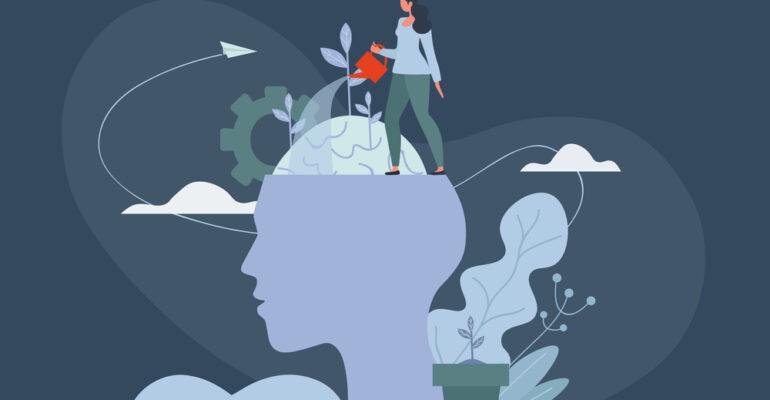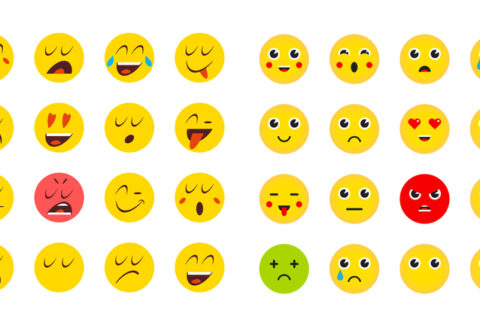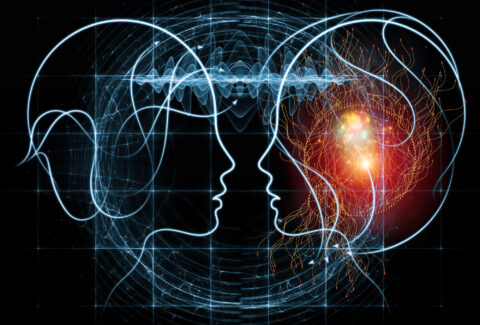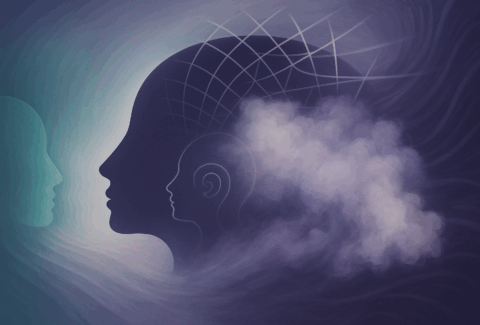Denying Our Own Responsibility in the Regulation of Psychological Developmental Change and Course

Denying Our Own Responsibility in the Regulation of Psychological Developmental Change and Course
Psychological development[1] is a complex and lifelong process that is influenced by a multitude of factors, including biology, environment, social interactions, and personal choices. While we often acknowledge external influences on our development, there is a tendency to overlook or deny our own responsibility in regulating and guiding the course of our psychological growth. This denial can have significant consequences, as it limits our capacity for self-awareness, personal growth, and the ability to influence our own lives.
The Role of Self-Regulation in Psychological Development
Self-regulation[2] refers to the ability to manage one’s emotions, thoughts, and behaviors in a way that is conducive to achieving long-term goals. It plays a crucial role in psychological development, as it allows individuals to adapt to changing circumstances, overcome challenges, and make choices that align with their values and aspirations. Self-regulation is not only about controlling impulses or delaying gratification; it also involves actively shaping one’s environment, relationships, and life experiences to promote growth and well-being.[3]
From early childhood through adulthood, self-regulation is a key determinant of how individuals navigate the developmental stages of life. Children learn to regulate their emotions and behaviors with the help of caregivers, while adolescents and adults continue to refine these skills as they face increasingly complex social and personal challenges.[4] Effective self-regulation enables individuals to take responsibility for their actions, make informed decisions, and steer the course of their development in a positive direction.
The Tendency to Deny Responsibility
Despite the importance of self-regulation in psychological development, many individuals struggle with accepting responsibility for their own growth and change.[5] This denial can manifest in various ways, such as attributing failures or setbacks to external factors, avoiding difficult emotions or decisions, or relying on others to dictate the course of one’s life.[6] Such attitudes can hinder personal development and lead to a sense of helplessness or stagnation.
Several psychological mechanisms contribute to this denial of responsibility. One common mechanism is defense mechanisms like rationalization[7], where individuals justify their actions or inactions by creating plausible but untrue explanations. For example, a person might rationalize their lack of progress by blaming external circumstances, such as a difficult work environment or a lack of support, rather than examining their own role in the situation.
Another mechanism is learned helplessness[8], a condition in which individuals believe they have no control over the outcomes of their actions, often due to repeated experiences of failure or lack of control in the past. This belief can lead to a passive approach to life, where individuals stop trying to influence their own development and instead resign themselves to a fixed course.
Externalization[9] is another form of denial, where individuals project their own responsibilities onto others. For example, someone might blame their partner, family, or society for their unhappiness or lack of fulfillment, rather than taking steps to address these issues themselves. This externalization of responsibility can prevent individuals from engaging in the self-reflection and personal accountability necessary for growth.
The Impact of Denying Responsibility
When individuals deny their responsibility in regulating their psychological development, they may experience a range of negative consequences. These can include stagnation in personal growth, difficulty in achieving goals, strained relationships, and a lack of fulfillment or meaning in life. By failing to take ownership of their development, individuals may miss out on opportunities for learning, self-discovery, and transformation.
Moreover, denying responsibility can perpetuate a cycle of dependency and passivity[10]. When individuals rely on others or external circumstances to dictate the course of their lives, they may become increasingly disengaged from the process of self-regulation. This can lead to a sense of disempowerment and a belief that they are at the mercy of forces beyond their control.[11]
In contrast, those who embrace their responsibility for psychological development are more likely to experience growth, resilience, and a sense of agency. By actively engaging in the process of self-regulation, individuals can shape their lives in ways that reflect their values, goals, and aspirations. They are better equipped to adapt to challenges, make informed choices, and pursue meaningful and fulfilling paths.
Overcoming the Denial of Responsibility
To overcome the denial of responsibility in psychological development, it is essential to cultivate self-awareness and a willingness to engage in self-reflection. This involves acknowledging one’s role in shaping one’s own life and recognizing the power of personal agency.
Strategies for fostering this awareness and responsibility include:
- Mindfulness and Self-Reflection: Practicing mindfulness and self-reflection can help individuals become more aware of their thoughts, emotions, and behaviors. By regularly reflecting on their actions and decisions, individuals can identify patterns of avoidance or denial and take steps to address them.[12]
- Setting Intentional Goals: Establishing clear, intentional goals for personal development can provide a sense of direction and purpose. By setting goals that align with their values and aspirations, individuals can take proactive steps to regulate their own development.
- Accountability: Holding oneself accountable for actions and decisions is crucial for personal growth.[13] This can involve seeking feedback from others, setting up systems for self-monitoring, or enlisting the support of a mentor or coach.
- Embracing Challenges: Rather than avoiding difficult situations or emotions, individuals can view challenges as opportunities for growth. By facing these challenges head-on, they can develop the resilience and skills needed to navigate their psychological development.[14]
- Cultivating a Growth Mindset: Adopting a growth mindset[15], as described by psychologist Carol Dweck, involves believing that abilities and intelligence can be developed through effort and learning. This mindset encourages individuals to take responsibility for their development and view setbacks as opportunities for improvement.
Conclusion: Embracing Responsibility for Psychological Development
The process of psychological development is dynamic and ongoing, requiring active engagement and responsibility. While it is natural to encounter obstacles and challenges along the way, denying our own responsibility in this process can hinder growth and limit our potential. By embracing our role in regulating and guiding our development, we can unlock new possibilities for self-discovery, fulfillment, and transformation.
Ultimately, taking responsibility for psychological development is not about achieving perfection or avoiding mistakes. It is about recognizing the power we have to influence our own lives and making conscious choices that align with our values and goals. By doing so, we can navigate the complexities of life with greater clarity, purpose, and resilience, and create a future that reflects our true potential.
[1] Barnes-Holmes, Yvonne, et al. “Psychological development.” Relational frame theory: A post-Skinnerian account of human language and cognition (2001): 157-180.
[2] McClelland, Megan, et al. “Self-regulation.” Handbook of life course health development (2018): 275-298.
[3] Posner, Michael I., and Mary K. Rothbart. “Developing mechanisms of self-regulation.” Development and psychopathology 12.3 (2000): 427-441.
[4] Montroy, Janelle J., et al. “The development of self-regulation across early childhood.” Developmental psychology 52.11 (2016): 1744.
[5] Lacey, Nicola. “Denial and responsibility.” Crime, Social Control and Human Rights. Willan, 2013. 255-269.
[6] Wiebe, Deborah J., and Carolyn Korbel. “Defensive denial, affect, and the self-regulation of health threats.” The self-regulation of health and illness behaviour. Routledge, 2012. 184-204.
[7] Cherepanov, Vadim, Timothy Feddersen, and Alvaro Sandroni. “Rationalization.” Theoretical Economics 8.3 (2013): 775-800.
[8] Seligman, Martin EP. “Learned helplessness.” Annual review of medicine 23.1 (1972): 407-412.
[9] Novick, Jack, and Kerry Kelly. “Projection and externalization.” The psychoanalytic study of the child 25.1 (1970): 69-95.
[10] Schiff, Aaron Wolfe, and Jacqui Lee Schiff. “Passivity.” Transactional Analysis Journal 1.1 (1971): 71-78.
[11] Markman, Keith D., and Philip E. Tetlock. “‘I couldn’t have known’: Accountability, foreseeability and counterfactual denials of responsibility.” British Journal of Social Psychology 39.3 (2000): 313-325.
[12] Carson, Shelley H., and Ellen J. Langer. “Mindfulness and self-acceptance.” Journal of rational-emotive and cognitive-behavior therapy 24 (2006): 29-43.
[13] McGrath, Stephen Keith, and Stephen Jonathan Whitty. “Accountability and responsibility defined.” International Journal of Managing Projects in Business 11.3 (2018): 687-707.
[14] McGrath, Stephen Keith, and Stephen Jonathan Whitty. “Accountability and responsibility defined.” International Journal of Managing Projects in Business 11.3 (2018): 687-707.
[15] Dweck, Carol. “What having a “growth mindset” actually means.” Harvard business review 13.2 (2016): 2-5.






